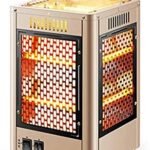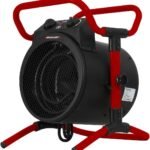Are you curious about the potential savings of a tankless model over a traditional tank model? This article is designed with you in mind, aiming to shed light on the financial advantages that may come your way when you exchange your conventional tank water heater for a more modern, efficient tankless version. So, brace yourself for an eye-opening journey that’ll give you insights on the potential savings and benefits of making the switch.
Understanding Different Water Heaters
The journey to find the perfect water heater starts with understanding the two chief varieties available in the market – traditional tank water heaters and tankless water heaters.
Traditional tank water heaters
Traditional tank water heaters store and heat water in a large tank, commonly holding between 30 to 50 gallons. They maintain the water at a set temperature, so it’s ready for use when you need it. These are the most common types of heaters in homes due to their simple installation process and lower initial cost.
Exploration of tankless water heaters
Tankless models, also referred to as on-demand or instantaneous water heaters, only heat water when needed. Instead of storing heated water in a tank, the water is rapidly heated by a powerful burner as it passes through the unit. These heaters provide unlimited hot water as they heat water on demand, and thus are more energy-efficient than their traditional counterparts.
Key differences between tank and tankless models
The primary differences rest in their operating mechanisms. Traditional tank heaters use more energy as they continuously heat stored water, while tankless models only heat water on demand. Therefore, in the long run, tankless models can prove to be cost-saving due to reduced energy consumption. However, they have a higher upfront cost than traditional tank models.
Capital Costs of Tank and Tankless Water Heaters
The capital costs include the price of the heater itself and the installation charges.
Buying price of traditional tank water heaters
Traditional tank water heaters cost less than tankless models. You can find a reliable tank model for a few hundred dollars.
Initial costs of tankless water heaters
Though tankless models are more efficient, their upfront cost is higher, usually costing upwards of a thousand dollars. However, higher initial costs can be recovered over time due to energy savings.
Installation costs comparison
Installing a traditional tank heater tends to be easier and thus less expensive than a tankless model. However, the complexity of the installation varies according to the home’s existing setup and the particular model chosen.
Operating Costs of Tank and Tankless Water Heaters
The operating costs include the energy consumed by the heater to heat the water.
Energy usage of tank water heaters
Traditional tank water heaters expend more energy as they continuously heat and reheat water in the tank to maintain a set temperature, even when hot water isn’t being used.
Energy efficiency of tankless water heaters
On the contrary, tankless water heaters are more energy-efficient as they only heat the water when it’s needed. Thus, they allow you to save on energy bills in the long run.
Comparison of monthly utility bills
Though tankless water heaters have higher upfront costs, their energy efficiency can result in lower monthly utility bills compared to traditional tank models, contributing to significant savings over time.
Lifespan of Tank and Tankless Water Heaters
Among the factors to consider when choosing between tank and tankless water heaters is their respective lifespans.
Expected lifespan of traditional tank water heaters
Typically, traditional tank water heaters last around 10 to 15 years, depending on their usage and maintenance.
Durability and lifespan of tankless water heaters
Tankless water heaters are more durable, often lasting over 20 years. Over the lifespan of a tankless model, you may need to replace a traditional tank water heater twice, demonstrating the potential savings in replacement costs.
The impact of lifespan on savings
While the initial costs of tankless water heaters are significant, their longer lifespan can result in considerable savings in replacement costs over time.
Maintenance Costs for Tank and Tankless Water Heaters
Both tank and tankless water heaters require regular maintenance to ensure their optimal performance.
Yearly maintenance of tank water heaters
Traditional tank heaters require regular draining to prevent sediment buildup, which can damage the tank and reduce efficiency.
Keeping up with tankless water heater maintenance
Tankless water heaters need regular descaling, particularly in areas with hard water. Also, professional servicing may be required for their intricate components, thereby incurring potential costs.
The role of maintenance costs in overall savings
Maintenance costs are essential factors to consider when calculating the overall savings of a water heater. Though tankless models might entail higher servicing costs, their longer lifespan and lower risk of damage can offset these prices.
Environmental Impact of Tank vs Tankless
The environmental impact of water heaters also plays an important role in the choice between tank and tankless models.
Environmental footprint of tank water heaters
Traditional tank water heaters can have a larger environmental footprint due to their higher energy consumption, leading to increased greenhouse gas emissions.
Ecological benefits of tankless water heaters
Tankless water heaters are more environmentally friendly as they consume less energy. They also minimize water wastage as they heat water on demand, further bolstering their eco-credentials.
How green savings can also be financial savings
Choosing tankless water heaters can not only support environmental conservation but also save costs associated with high energy consumption.
Potential Rebates and Incentives
Certain rebates and incentives can ease the burden of upfront costs for both tank and tankless water heaters.
Available rebates for tank water heaters
While traditional tank water heaters have lower initial costs, their potential for rebates and incentives is also lesser due to their higher energy consumption.
Incentives for adopting tankless models
On the other hand, the high-efficiency nature of tankless models may make you eligible for potential rebates and incentives, thereby reducing their upfront costs significantly.
How these incentives affect overall savings
Rebates and incentives can significantly offset the initial high costs of tankless water heaters, thereby improving their overall savings prospect.
Space Considerations for Tank vs Tankless
One significant aspect when choosing between tank and tankless water heaters is the space they occupy in your home.
Space required for tank water heaters
Traditional tank water heaters are bulky and demand substantial space, which might be a constraint in smaller homes or apartments.
Compact nature of tankless water heaters
In contrast, tankless models are compact and can be wall-mounted, freeing up valuable floor space. Hence, for many homeowners, a tankless water heater could add significant value in terms of floor space.
Possible savings from freed-up space
The freed-up space can be utilized for various purposes – be it storage or additional mini-shelf – potentially contributing to extra savings.
Potential Resale Value of Your Home
Installing a water heater, especially a high-efficiency tankless model, can impact your home’s resale value.
Effect of tank water heaters on home resale value
Investing in a traditional tank water heater may not significantly influence your home’s resale value due to their commonality and lower efficiency.
Impact of tankless water heaters on home resale value
On the flip side, tankless water heaters, owing to their efficiency and eco-friendliness, can potentially increase your home’s resale value.
Calculating potential resale profit
The potential increase in the home’s resale value should be considered when calculating the savings of switching to a tankless water heater.
Calculating the Total Savings
Once you consider all of the factors we’ve explored, you can make an informed choice between tank and tankless water heater, based on the long-term savings and benefits of each model.
Reviewing the upfront and recurring costs
Examining the upfront costs, operating costs, and potential savings are critical in making a well-informed decision. While tankless models have higher initial costs, they result in significant savings in the long run due to their efficient operation and potentially lower utility bills.
Consideration of potential profits and incentives
Added benefits such as rebates, incentives, and potential increase in resale value should also be taken into consideration when calculating total savings.
Total savings from using a tankless model instead of a tank model
In conclusion, while the choice between traditional tank and tankless water heaters depends on myriad factors, adopting a tankless model appears to offer more eco-friendly operation, long-term financial savings, increased longevity, and might even boost the resale value of your home.









